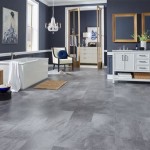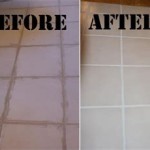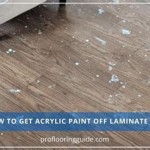Can You Use Tile Adhesive For Vinyl Flooring?
When it comes to installing vinyl flooring, choosing the right adhesive is crucial for a durable and long-lasting installation. While tile adhesive may seem like a viable option, it's important to understand the differences between tile adhesive and vinyl adhesive and why using tile adhesive for vinyl flooring is not recommended.
Understanding Tile Adhesive
Tile adhesive is specifically formulated for bonding ceramic, porcelain, or natural stone tiles to various substrates. It typically contains a blend of cement, sand, and polymers that provide strong adhesion and flexibility. Tile adhesive is designed to withstand the weight of heavy tiles and the stresses caused by moisture and temperature fluctuations.
Why Tile Adhesive is Not Suitable for Vinyl Flooring
Vinyl flooring is a lightweight, resilient flooring material that does not require the same strong adhesion as tiles. Using tile adhesive for vinyl flooring can have several disadvantages:
- Excessive Adhesion: Tile adhesive is highly adhesive, which can make it difficult to remove vinyl flooring if needed. It can also damage the subfloor or backing of the vinyl flooring during removal.
- Lack of Flexibility: Tile adhesive is less flexible than vinyl flooring, which can lead to cracking or buckling of the vinyl over time. Vinyl flooring is designed to expand and contract with changes in temperature and humidity, and a rigid adhesive can restrict this movement.
- Moisture Sensitivity: Tile adhesive is typically cement-based, which makes it sensitive to moisture. If the subfloor or surrounding environment is not properly moisture-controlled, the adhesive can break down, leading to poor adhesion and potential flooring failure.
Suitable Adhesives for Vinyl Flooring
For vinyl flooring, it is essential to use specifically formulated vinyl adhesive. Vinyl adhesives are designed to provide the right balance of adhesion, flexibility, and moisture resistance for vinyl flooring:
- Pressure-Sensitive Adhesives (PSAs): PSAs are self-adhesive and require no additional moisture or heat for activation. They provide a strong bond to vinyl flooring, but may not be suitable for heavy traffic areas.
- Water-Based Adhesives: Water-based adhesives are applied using a trowel and require a drying time before the flooring is installed. They offer good adhesion, moisture resistance, and allow some repositioning before the adhesive fully sets.
- Solvent-Based Adhesives: Solvent-based adhesives are applied using a trowel and contain solvents that evaporate during the drying process. They provide a strong, permanent bond and are often used for heavy commercial applications.
When selecting vinyl adhesive, consider the specific type of vinyl flooring, the subfloor material, and the traffic level of the area. Always follow the manufacturer's instructions for proper application and drying times.
Conclusion
While tile adhesive may seem like a convenient option for vinyl flooring, it is not recommended due to its excessive adhesion, lack of flexibility, and moisture sensitivity. Using the appropriate vinyl adhesive designed for the specific flooring type and application is crucial for a durable and successful vinyl flooring installation.

What S The Best Glue To Use For Vinyl Flooring Sprayidea

What S The Best Glue To Use For Vinyl Flooring Sprayidea

How To Choose The Right Adhesive For Your Flooring Type

How To Install L And Stick Vinyl Tiles Houseful Of Handmade

How To Install L And Stick Vinyl Tiles Houseful Of Handmade

Dap Weldwood 1 Qt Floor Tile Adhesive 00136 Fry S Food

How To Install Ceramic Tile Over Vinyl Flooring

Luxury Vinyl Tile Installation Diy Family Handyman

Roberts 1 Qt Vinyl Composition Tile Floor Adhesive 2057 0 The Home

Vinyl Tile Installation A Comprehensive Guide Gc Flooring Pros
See Also







